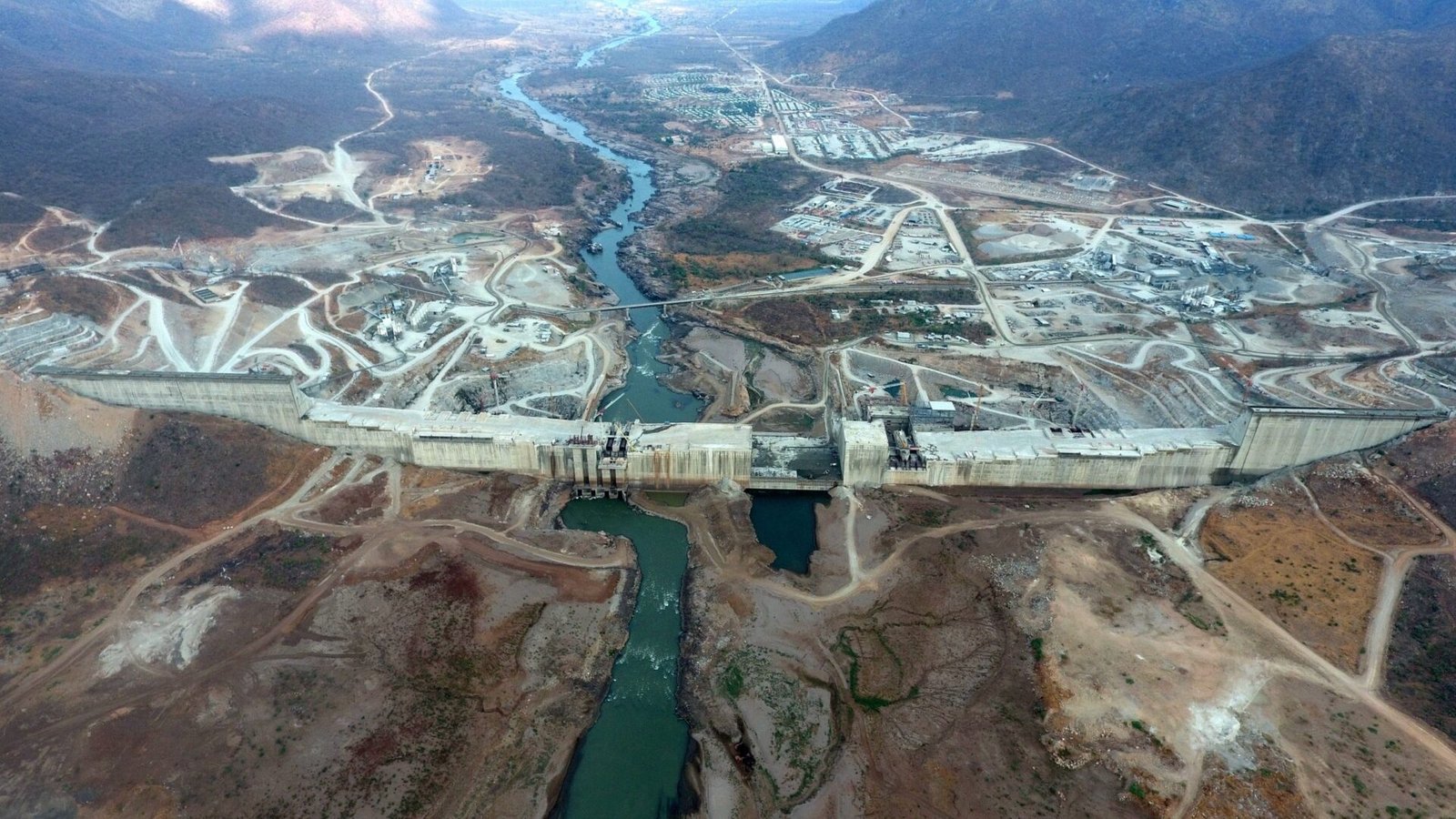ADDIS ABABA, Ethiopia — Ethiopia has announced the completion of its colossal Grand Ethiopian Renaissance Dam (GERD) on the Blue Nile, a project that has been a persistent source of contention with downstream nations Egypt and Sudan.
Started in 2011 with a budget of $4 billion, the dam stands as Africa’s largest hydroelectric plant and a significant symbol of national pride for Ethiopia.
While Ethiopia views the dam as crucial for addressing its substantial energy deficit—with approximately 60% of its population lacking electricity—Egypt and Sudan perceive it as a grave threat to their vital water supply from the Nile.
In a statement confirming the project’s completion, Prime Minister Abiy Ahmed extended an olive branch to his neighbors.
“To our neighbours downstream – Egypt and Sudan – our message is clear: the Renaissance Dam is not a threat, but a shared opportunity,” he declared. This follows a controversial remark in 2020 by then-US President Donald Trump, who suggested Egypt had threatened to “blow up” the dam.
In a gesture of conciliation, Prime Minister Abiy stated that both Egypt and Sudan would be invited to the dam’s official inauguration in September. “We believe in shared progress, shared energy, and shared water,” he affirmed.
Also Read: Kenya, Ethiopia sign historic agreement to boost cross-border trade
However, concerns persist among the downstream nations. Earlier this week, AFP news agency reported that Egypt’s President Abdel Fattah al-Sisi and Sudan’s military chief Abdel Fattah al-Burhan met and “stressed their rejection of any unilateral measures in the Blue Nile Basin.”
The GERD, spanning over a mile in length and towering 145 meters high, is situated on the Blue Nile tributary in the northern Ethiopian highlands, which accounts for 85% of the Nile’s waters.
Egypt’s heavy reliance on the Nile for nearly all its fresh water leads to fears of disrupted water flow; it has argued that even a 2% reduction in its Nile water allocation could result in the loss of 200,000 acres of irrigated land.
Sudan, also heavily dependent on the Nile, shares these apprehensions.
Despite Prime Minister Abiy’s assertion that Ethiopia is “willing to engage constructively” with the two countries, previous negotiations have repeatedly failed to resolve the long-standing differences.

